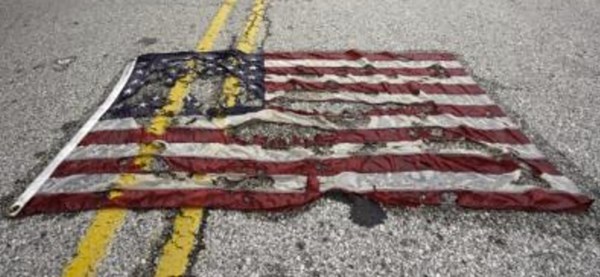I cried the first time I read general surgery resident Dr. Joshua Corso's Facebook post about his blood-stained shoes in the aftermath of the Orlando shooting. It went something like this: “On these shoes, soaked between its fibers, is the blood of 54 innocent human beings. I don't know which were straight, which were gay, which were black, or which were Hispanic. What I do know is that they came to us in wave upon wave of suffering. And somehow, in that chaos, doctors, nurses, technicians, police, paramedics, and others, performed super human feats of compassion and care” For on June 12, after the worst of humanity reared its evil head, I saw the best of humanity come fighting right back.”
Less than a month later, I became tearful listening to Dr. Brian Williams, a trauma surgeon at Parkland Memorial Hospital in Dallas, Texas, speak with a quivering voice about the emotional impact of the shooting that killed five police officers on July 8. He talked about his regret in not being able to save them. He spoke eloquently about the complexity of his emotional response as an African American man who identifies with those who have felt targeted by law enforcement yet abhorred by the senseless acts of killing of those who are sworn to defend us.
As a human being, I am saddened, disheartened, and disillusioned. I mourn the lives lost, I grieve for their families, and I pray for a country that continues to be battered and broken by hateful acts of violence. I think about my fellow residents who have been on the front lines- who have been asked to rise above the grief when the tragedies of our time arrive at their doorsteps — and who continue to execute their jobs as physicians, providing the best care, even in the face of disaster. I cannot imagine the emotional toll of caring for these victims.
We are privileged to be tasked with such great responsibility, and to work within an environment that does not discriminate nor condemn on the basis of race, religion, gender, sexual orientation, or financial means; a safety net for our communities' most wounded and vulnerable citizens. It is also the place where our health disparities and public health crises are most intensely magnified. Where the hospital executive has his first heart attack in a room next to the Bosnian refugee with uncontrolled diabetes. Where the wealthy lawyer from out-of-town writhes in pain from a kidney stone next to the homeless man washing his clothes in the sink.
It is a place where people die from preventable diseases and situations - by guns and opioid overdoses, by uncontrolled hypertension and suicide attempts. As physicians, we are nowhere near perfect. We all have implicit biases that subconsciously impact the way we care for our patients. However, we must continue to try and be role models for the citizens of our country — to transcend boundaries of religion, ethnicity, race, gender, socioeconomic status, and political beliefs — to care for our fellow humans with compassion and empathy, and to remain just and kind. This is the America we must hope to represent. We have seen, in the care of the victims in both Orlando and Dallas, what is possible when we recognize that we are one American family. Let's continue to be the best that humanity has to offer, and to always “come fighting right back.”
I hope you find this issue as inspiring and motivating as I have, as it addresses some of the most pressing matters of our time. I leave you with this”
“With all its sham, drudgery, and broken dreams, it is still a beautiful world.” — Max Erhman, Desidarata



